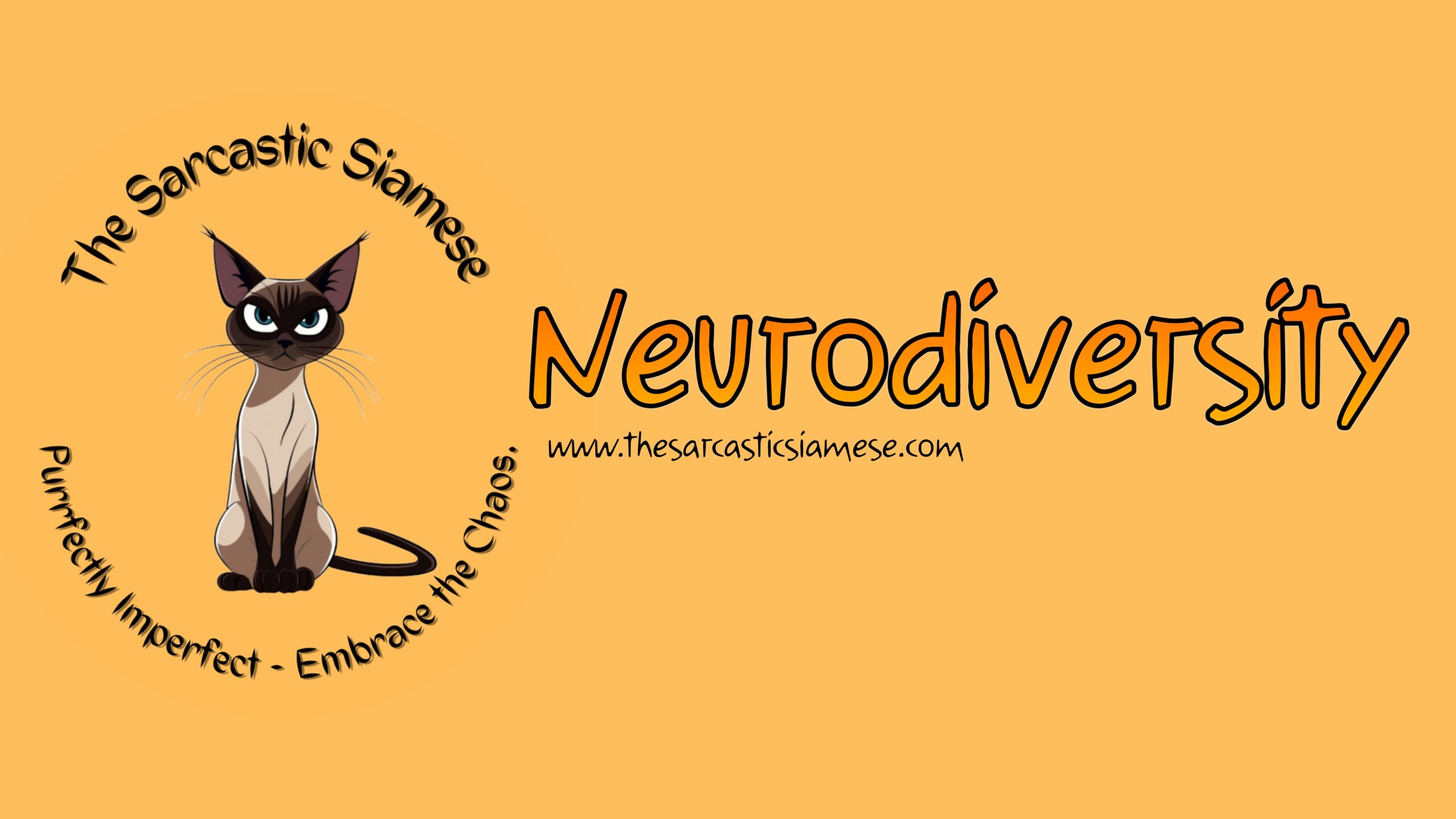Hello, fellow cat enthusiasts and advocates of all things wonderfully unique! Today, we’re diving whiskers-first into a topic that’s as important as a cat’s nap time: advocating for the rights and inclusion of neurodivergent individuals. Grab your favorite cat-themed mug, fill it with something delightful, and let’s explore how we can purr-suade the world to embrace neurodiversity.

Empathy and Understanding: The Heart of Advocacy
At the heart of advocacy lies empathy, the ability to understand and share the feelings of others. Empathy is not just a buzzword; it’s the cornerstone of meaningful change and inclusion. When we approach advocacy with empathy, we open ourselves to truly understanding the unique challenges and strengths of neurodivergent individuals.
Empathy requires us to listen actively and engage with the experiences of those we advocate for. It’s about moving beyond preconceived notions and stereotypes to see the world through their eyes. Imagine stepping into the shoes of someone who experiences the world so differently. What does their day look like? What obstacles do they face, and what strengths do they possess that the world often overlooks?
Understanding these nuances allows us to advocate effectively and compassionately. It’s not about just speaking for neurodivergent individuals but amplifying their voices and supporting their self-advocacy. By recognizing the value they bring to the world, we can challenge societal norms and push for inclusive environments where everyone can thrive.
Empathy also involves acknowledging our own biases and being willing to learn and grow. It’s about fostering a culture of acceptance and respect, where differences are celebrated rather than merely tolerated. When we lead with empathy, we create spaces where neurodivergent individuals feel seen, heard, and valued.
In the end, advocacy driven by empathy is about building bridges of understanding and connection. It’s about creating a community where everyone, regardless of neurological differences, can contribute their unique talents and perspectives. By embracing empathy and understanding, we unlock the true potential of advocacy, transforming lives and communities for the better.

Understanding Neurodiversity: More Than Just a Buzzword
Before we unleash our inner advocates, let’s make sure we’re all on the same page. Neurodiversity is the idea that neurological differences—like autism, ADHD, dyslexia, and others—are natural variations of the human brain. These differences are not flaws or deficits; they’re just different ways of experiencing the world. Think of it like the diverse coat patterns of cats—each unique and beautiful in its own right.
Why Advocacy Matters: Beyond the Comfort Zone
Advocacy is crucial because, despite progress, neurodivergent individuals still face barriers in education, employment, and everyday life. It’s like trying to herd cats—challenging but not impossible. By advocating for neurodivergent rights, we can create a more inclusive society where everyone can thrive.
Purr-ticipation: How to Get Involved
Educate Yourself and Others
Knowledge is power, and understanding neurodiversity is the first step. Here are some resources to get you started:
–NeuroTribes: The Legacy of Autism and the Future of Neurodiversity by Steve Silberman offers an in-depth look at the history and future of neurodiversity.
–Autism Feels… An Earthling’s Guide by Orion Kelly offers a first person view on being autistic.
Support Neurodivergent Voices
Amplify the voices of neurodivergent individuals by sharing their stories and experiences. Here are a few social media influencers to follow:
- @theautisticats on Instagram: A collective of autistic individuals sharing insights and advocacy.
- @neurodivergentrebel on the platform formerly known as Twitter: An advocate for neurodiversity and inclusion, sharing personal experiences and educational content.
- @jessicaoutofthecloset on YouTube: Jessica Kellgren-Fozard, who shares her experiences with disability and neurodivergence with humor and insight.
- @orionkelly on YouTube: Orion Kelly shares valuable insights about growing up undiagnosed as autistic, along with both his and his autistic son’s current day experiences. Some of his stories are absolutely heart-wrenching.
Advocate for Inclusive Policies
Get involved in advocacy efforts that promote inclusive policies in education and the workplace. Support legislation that protects the rights of neurodivergent individuals, ensuring they have equal opportunities to succeed.
Create Supportive Environments
Whether at home, school, or work, strive to create environments that are supportive and accommodating. Here are a few ways to do this:
- Flexible Workspaces: Allow for different seating arrangements and quiet areas for concentration.
- Clear Communication: Use straightforward language and visual aids to enhance understanding.
- Sensory Considerations: Be mindful of sensory sensitivities by controlling noise levels and lighting.

Challenge Stereotypes and Stigma
Bust myths and challenge stereotypes whenever you encounter them. Here are some common stereotypes and the truths behind them:
- Stereotype: Neurodivergent individuals lack empathy.
- Truth: Many neurodivergent individuals experience empathy differently, often feeling deeply for others.
- Stereotype: Autism only affects boys.
- Truth: Autism affects individuals of all genders, but girls and women are often underdiagnosed due to different presentation.
- Stereotype: ADHD is just an excuse for laziness.
- Truth: ADHD is a legitimate neurological condition that affects focus and impulse control, not a lack of motivation.
- Stereotype: Neurodivergent individuals can’t succeed in professional environments.
- Truth: Many neurodivergent individuals excel in various professional fields, bringing unique strengths such as creativity, attention to detail, and innovative problem-solving skills. Companies that embrace neurodiversity often find that these employees contribute significantly to their success.
- Stereotype: All autistic people are non-verbal or have intellectual disabilities.
- Truth: Autism is a spectrum, meaning it encompasses a wide range of abilities and challenges. While some autistic individuals are non-verbal or have intellectual disabilities, many are highly articulate and possess average or above-average intelligence.
- Stereotype: Neurodivergent individuals are anti-social or don’t want friends.
- Truth: Neurodivergent individuals often desire social connections but experience social interactions differently. They may prefer smaller gatherings or need support in navigating social cues, but this doesn’t mean they don’t value friendships.
- Stereotype: ADHD is just about being hyperactive and inattentive.
- Truth: ADHD affects executive functioning, which includes planning, organizing, and regulating emotions. It can manifest in various ways, including hyperfocus on tasks of interest, and is not solely about hyperactivity or lack of attention.
- Stereotype: Neurodivergent individuals can’t live independently.
- Truth: Many neurodivergent individuals live independently and lead fulfilling lives. With the right support and accommodations, they can manage daily responsibilities and achieve personal goals quite easily.
- Stereotype: Neurodivergent individuals are only interested in specific, niche topics.
- Truth: While some neurodivergent individuals have intense interests in specific areas, they can also have a wide range of interests and hobbies. Those focused interests, however, can lead to expertise and deep knowledge in their chosen fields.
By challenging these stereotypes and embracing the truths, we can foster a more inclusive and understanding society that recognizes the diverse capabilities of neurodivergent individuals.
Pawsitive Impact: Real-Life Success Stories
Let’s take a moment to celebrate some pawsitive impact stories. From companies embracing neurodiversity in their hiring practices to schools implementing inclusive teaching methods, change is happening. For example:
- Microsoft’s Autism Hiring Program: Microsoft has developed a hiring program specifically for neurodivergent candidates, recognizing the unique skills and perspectives they bring to the tech industry.
- The Rising Tide Car Wash: This business employs primarily autistic individuals, showcasing how neurodivergent employees can excel in a supportive and understanding environment.
- SAP’s Autism at Work Program: a global software company that launched their Autism at Work program to harness the unique talents of autistic individuals in roles that require intense focus and attention to detail. By creating an inclusive hiring process and supportive work environment, SAP has successfully integrated neurodivergent employees into their teams, leading to increased innovation and problem-solving capabilities.
- Ultranauts: this technology company has built its workforce around neurodiversity by employing a significant number of autistic individuals. They focus on leveraging the strengths of neurodivergent employees, such as pattern recognition and logical reasoning, to deliver high-quality software testing services. This approach has not only resulted in exceptional business performance but also fostered a culture of inclusion and acceptance.
- Specialisterne: Founded in Denmark, Specialisterne is a social enterprise that provides training and employment opportunities for neurodivergent individuals, particularly those on the autism spectrum. They work with businesses worldwide to help them understand and utilize the talents of neurodivergent employees, proving that diversity can lead to competitive advantages in various industries.
- Ernst & Young’s Neurodiversity Centers of Excellence: Ernst & Young (EY) has established Neurodiversity Centers of Excellence in several locations, focusing on hiring neurodivergent individuals for roles in data analytics, cybersecurity, and more. These centers have demonstrated that neurodivergent employees can excel in complex tasks and contribute to innovative solutions, enhancing EY’s service offerings.
- The Spectrum Works: an organization dedicated to creating job opportunities for neurodivergent individuals, The Spectrum Works partners with companies to provide training and employment for autistic individuals. By focusing on each individual’s strengths, they help bridge the gap between talent and opportunity, leading to successful placements and increased awareness of neurodiversity in the workplace.
These stories remind us that advocacy is not just a dream—it’s a reality we can achieve together.

The Power of Community: Together We’re Stronger
Building a supportive community is essential for advocacy. Here are some online communities dedicated to neurodiversity:
- The Neurodiversity Network: An online platform connecting neurodivergent individuals and allies, offering resources and community support.
- Autistic Women & Nonbinary Network (AWN): An organization that provides support and advocacy for autistic women and nonbinary individuals.
- Neurodiverse Network: a group dedicated to providing a safe community for neurodivergent individuals and their families, with educational resources, support groups, and life improvement aids.
These communities offer a space for sharing resources, organizing events, and collaborating on initiatives. Remember, even the fiercest cat relies on its clowder for support.
Conclusion: Unleash Your Inner Advocate
Advocating for neurodiversity is not just a responsibility—it’s an opportunity to create a world where everyone can thrive. So, let’s channel our inner feline fierceness and work together to make a difference. After all, normal is just a setting on the dryer, and who wants to be normal when you can be extraordinary?Thank you for joining us on this journey of advocacy and inclusion. Stay curious, stay kind, and keep spreading the love—because every voice matters, and together, we can create a world that’s as diverse and beautiful as our beloved feline friends.


